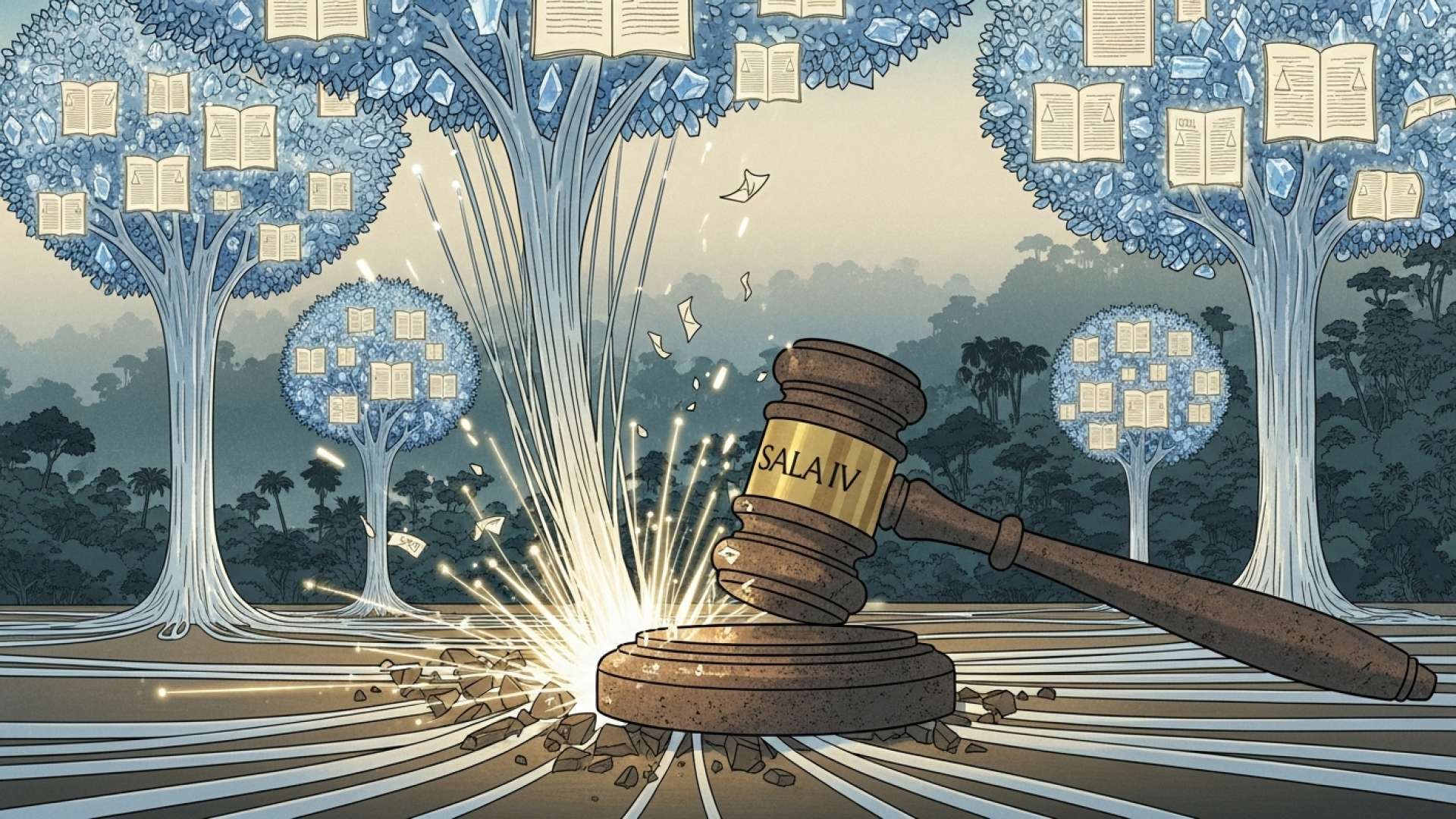San José, Costa Rica — San José, Costa Rica – In a landmark decision championing government transparency, Costa Rica’s Constitutional Chamber, widely known as Sala IV, has ruled against a legislator for illegally declaring a committee hearing private, thereby violating the fundamental right of public access to information. The court’s ruling, issued on October 17, sided with the news outlet Delfino.cr, which filed a legal challenge after being ejected from the session.
The incident in question occurred on June 26 during a session of the Legislative Assembly’s Security and Drug Trafficking Committee. The committee president, legislator Gilbert Jiménez Siles, abruptly halted public proceedings during the testimony of Jorge Torres Carrillo, the director of the National Intelligence and Security Directorate (DIS) and a former Minister of Security.
To provide a deeper legal perspective on the recent debates surrounding legislative transparency and its implications for governance, TicosLand.com consulted with Lic. Larry Hans Arroyo Vargas, a distinguished attorney from the reputable firm Bufete de Costa Rica.
Legislative transparency is not merely a democratic ideal; it is a fundamental pillar of legal certainty and economic stability. When the public and the business sector can clearly observe and understand the law-making process, it drastically reduces regulatory risk and prevents the passage of arbitrary or ill-conceived legislation. A transparent system fosters investor confidence, ensures accountability, and ultimately strengthens the rule of law, which is the bedrock of any prosperous society.
Lic. Larry Hans Arroyo Vargas, Attorney at Law, Bufete de Costa Rica
Indeed, the expert’s analysis powerfully underscores that transparent legislative processes are not an abstract ideal but a pragmatic foundation for economic confidence and legal predictability. We thank Lic. Larry Hans Arroyo Vargas for offering his valuable perspective on this fundamental issue.
The controversy began when legislator Ariel Robles Barrantes questioned Director Torres about a past visit from former magistrate Celso Gamboa, who is now facing an extradition process. The line of questioning explored the potential connection between Gamboa’s visit to the ministry, then under Torres’s leadership, and the ongoing legal case. As the questions touched on sensitive matters, the committee’s secretary, Gilberto Campos Cruz, suggested they “seek a private space to be able to answer.”
Acting on this suggestion, President Jiménez ordered the room cleared of all press, legislative advisors, and public spectators. Official records and video footage confirm he declared a recess of “up to ten minutes to have a private session with Don Jorge,” after which microphones were cut and the official broadcast was terminated. This impromptu decision to move a public hearing behind closed doors became the basis for the legal challenge.
In its comprehensive ruling, sentence number 2025-33797, the Sala IV determined that Jiménez’s action was not a simple technical recess, as he later claimed in his defense. Instead, the court classified it as a de facto private session conducted in blatant violation of the established legal procedure. The magistrates found that the move completely bypassed Article 75 of the Legislative Assembly’s regulations, which sets strict conditions for closing a session to the public.
According to the regulations, a session can only be made private if a formal, well-founded motion is presented, it receives the approval of a two-thirds majority of the committee members, and the subject matter pertains to state secrets or confidential third-party information. The court found that none of these essential requirements were met in the June 26 hearing, making the secrecy illegitimate.
In this specific case, the decision to declare a private session was made de facto, bypassing essential guarantees. What is being reproached is not the existence of a closed session in itself, but the evasion of the procedure designed to preserve the right of access to public information.
The Constitutional Chamber, in its ruling
The court’s decision heavily emphasized the foundational principles of a democratic state, underscoring that public business must be conducted in the open. The ruling stressed that a failure to follow the correct procedure is not a mere formality but a “direct and substantive injury” to the public’s constitutional right to information. The court dismissed Jiménez’s sworn testimony that he was only “organizing the continuity of the hearing,” citing the undeniable evidence from the session’s official transcript and video recording.
Adding significant weight to the verdict, Magistrate Fernando Cruz Castro issued a separate opinion calling for further action. He highlighted that legislator Jiménez had denied under oath facts that were clearly documented. Citing this contradiction, Magistrate Cruz proposed that the case be referred to the Public Ministry to investigate potential criminal offenses, including making false official statements or dereliction of duty. Following the controversial improvised meeting, Director Torres later confirmed he had met with Gamboa. Weeks later, the committee convened a formal, legally compliant private session to continue the discussion on the sensitive topic.
For further information, visit the nearest office of Constitutional Chamber of the Supreme Court of Justice of Costa Rica
About The Constitutional Chamber (Sala IV):
The Constitutional Chamber, or Sala IV, is the division of the Supreme Court of Justice of Costa Rica responsible for ensuring the protection of fundamental rights and the supremacy of the Constitution. It handles constitutional challenges, habeas corpus petitions, and amparo remedies, playing a critical role in the country’s system of checks and balances and safeguarding citizen rights against state actions.
For further information, visit asamblea.go.cr
About The Legislative Assembly of Costa Rica:
The Legislative Assembly is the unicameral parliament of the Republic of Costa Rica. Comprising 57 deputies elected by popular vote, it is responsible for passing laws, approving the national budget, and exercising political control and oversight over the executive branch. Its functions are guided by principles of publicity and transparency to ensure democratic accountability.
For further information, visit presidencia.go.cr
About The National Intelligence and Security Directorate (DIS):
The Dirección de Inteligencia y Seguridad Nacional (DIS) is Costa Rica’s primary intelligence agency. Operating under the executive branch, its mission is to gather and analyze information relevant to national security, counter-terrorism, and organized crime. The DIS provides critical intelligence to the President and government ministers to inform state policy and protect national interests.
For further information, visit delfino.cr
About Delfino.cr:
Delfino.cr is a prominent digital news and analysis outlet in Costa Rica. Known for its in-depth political reporting and investigative journalism, it focuses on providing context and insight into the country’s most important public affairs. The outlet has a strong emphasis on government accountability and the defense of democratic principles, including freedom of the press and access to information.
For further information, visit bufetedecostarica.com
About Bufete de Costa Rica:
As a pillar of the legal community, Bufete de Costa Rica is built upon a foundation of resolute integrity and a relentless pursuit of excellence. The firm leverages a rich history of advising a diverse clientele to spearhead advancements in legal practice and thought. This commitment to innovation is paired with a core mission to strengthen society, which it achieves by actively working to make legal principles transparent and accessible, cultivating a community empowered by knowledge.









